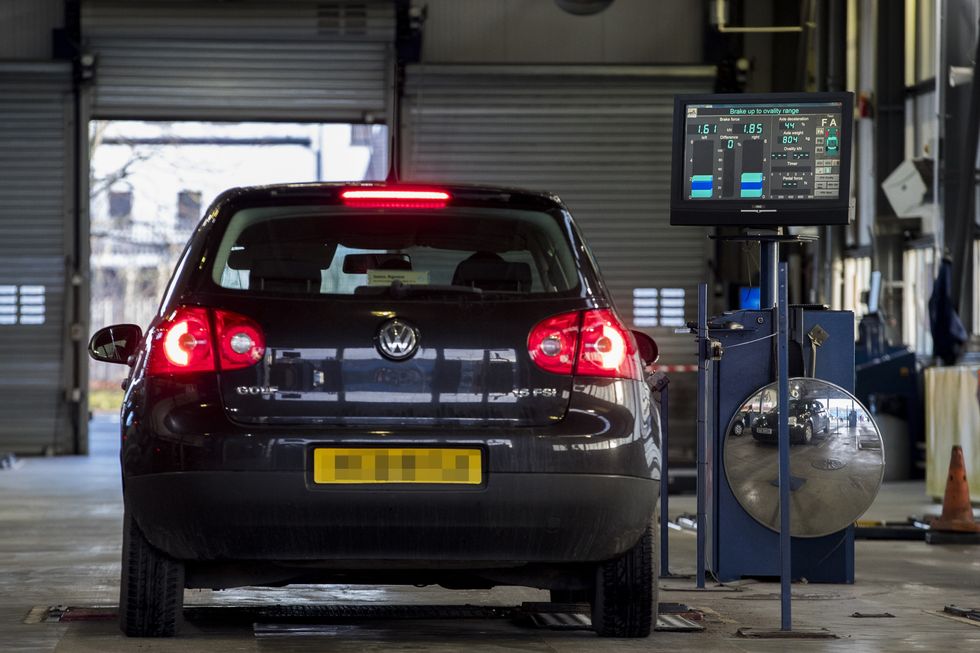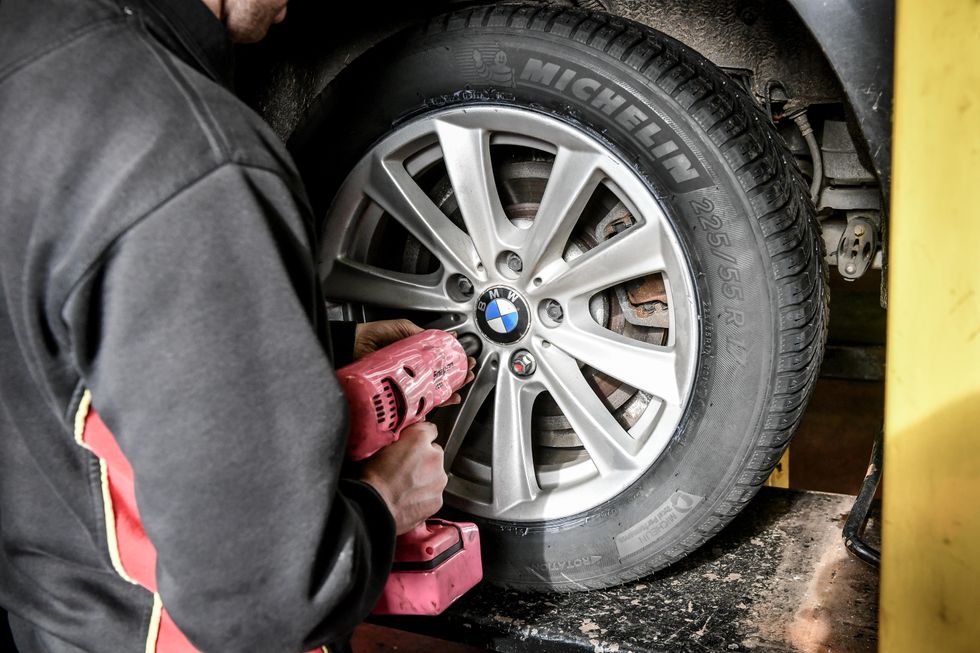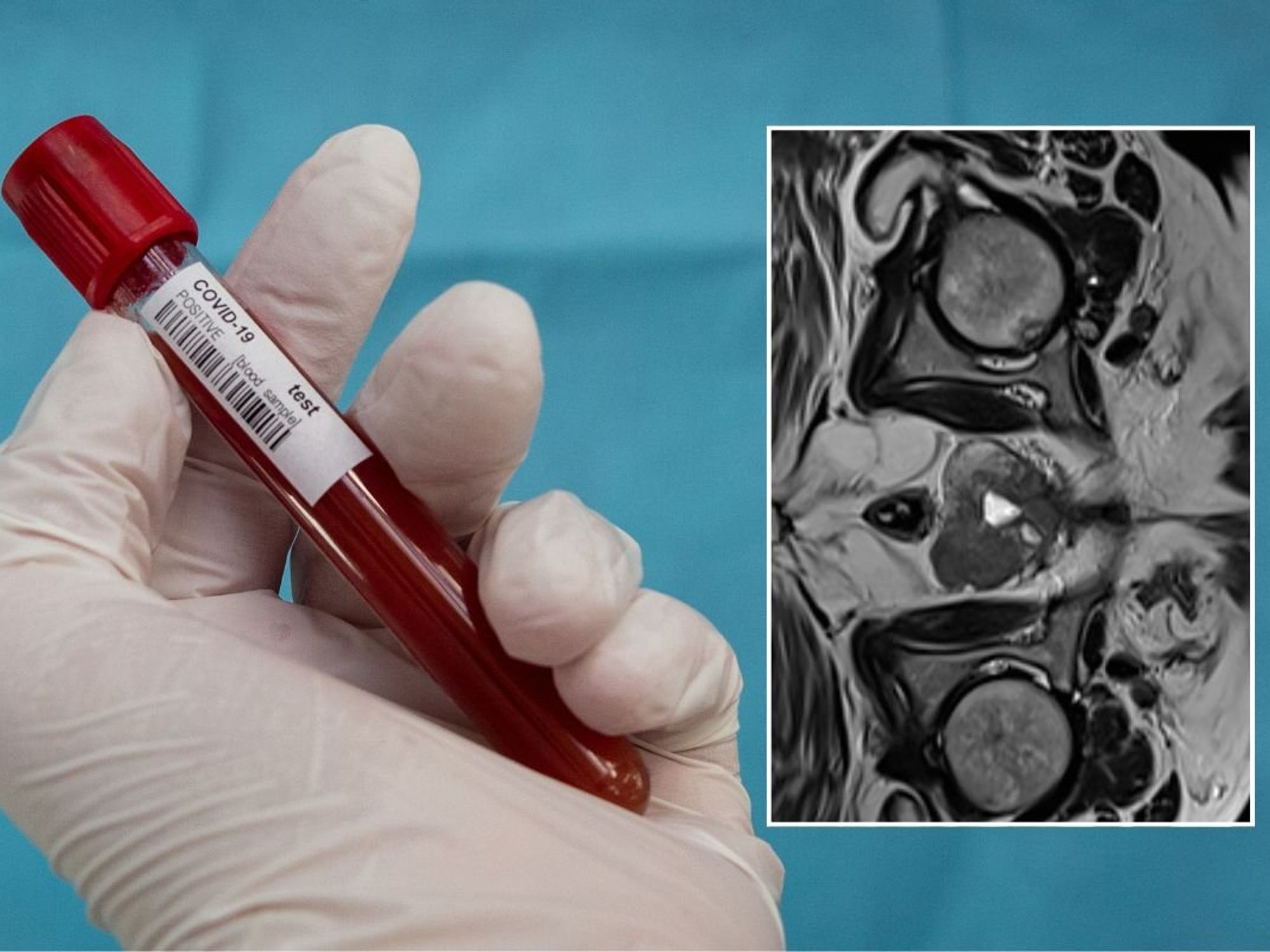Drivers risk £10,000 fines and having cars taken off roads for 'avoidable' MOT safety breaches

Millions of MOT failures were recorded last year for preventable car problems
Don't Miss
Most Read
Latest
Millions of vehicles have been found to have failed major safety tests across the UK for defects which could lead to severe penalties and more cars being taken off the road.
New research exposed several reasons why vehicles failed their MOT tests, including cars arriving at test centres with entire suspension components missing.
Analysis discovered that 394 vehicles lacked suspension springs, while 20 were missing suspension arms.
**ARE YOU READING THIS ON OUR APP? DOWNLOAD NOW FOR THE BEST GB NEWS EXPERIENCE**
Also among the peculiar findings were 61 motorists who attempted their MOT with two different headlights fitted to their vehicles. Perhaps most surprisingly, 3,485 cars failed simply because they lacked a wiper blade.

Drivers can be issued a driving ban for MOT failures and hefty penalties
| GETTYThe data revealed that while suspension defects were the leading cause of MOT failures overall, some of the individual reasons within this category were particularly extraordinary.
The findings emerged from an extensive Freedom of Information request submitted to the DVSA, examining MOT test results spanning a full year from June 2024 through June 2025.
Tyre defects emerged as the single biggest culprit, with more than one million vehicles failing because their tread depth fell below the legal minimum of 1.6mm.
Under UK law, drivers with defective tyres can be fined £2,500 per illegal tyre, with fines as high as £10,000 if all four tyres have issues. But if stopped by the police, they can also receive three penalty points on their driving licence.

The report found that suspension defects were the leading cause of MOT failures last year
| PASuspension component failures proved particularly problematic, with fractured or broken springs responsible for 821,911 test failures.
Worn brake pads represented another major issue, causing 768,436 vehicles to fail when the thickness dropped below the required 1.5mm minimum.
Drivers with worn-out brake pads can be issued fines and penalty points, with a potential £100 fine and three points per fault.
The research categorised failures into five main groups: suspension, lamps and electrical equipment, brakes, tyres, and body or chassis issues. Suspension problems dominated with nearly 4.9 million total failures, followed closely by lighting and electrical faults at 4.5 million.
LATEST DEVELOPMENTS:
Brake-related issues totalled over 4.1 million failures, while body and structural problems affected more than 1.5 million vehicles, with split or insecure constant velocity boots being the most frequent issue at 556,211 cases.
The tyre category revealed further concerning patterns, with eight vehicles failing due to inadequate speed ratings that could cause dangerous overheating at motorway speeds.
Another 414 cars were fitted with different-sized tyres on the same axle, creating serious handling risks.
Safety issues that should have been immediately apparent to drivers included 265 failures where vehicles pulled to one side during brake testing.
 Drivers could be slapped with a £10,000 fine if their tyres are not up to standard | PA
Drivers could be slapped with a £10,000 fine if their tyres are not up to standard | PAAdditionally, 516 cars failed because their seatbelts had been cut or modified, potentially compromising crash protection.
Driving a vehicle without a valid MOT can result in fines of up to £2,500, three penalty points, and a driving ban for a dangerous defect.
Abir Tewari, UK Director of Commercial Operations for Parts and Accessories at eBay, said: "Too many motorists are failing MOTs for avoidable reasons - from worn tyres to something as basic as a missing wiper blade.
"These are quick and inexpensive to fix, and with eBay’s My Garage, drivers can be confident they'll get the right part the first time."











